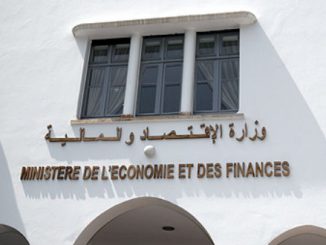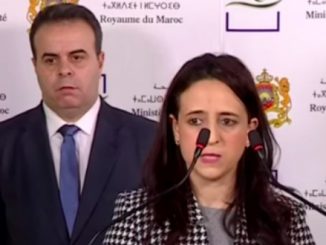
The magazine “Forbes France” highlighted, on Monday, the “Marshall Plan” deployed by King Mohammed VI, from the beginning of the health crisis related to the Coronavirus, as part of an approach of anticipation in order to preserve the Kingdom from the pandemic.
The magazine focuses on the details of this response plan and the various large-scale measures implemented by Morocco to fight against the spread of Coronavirus and cope with the economic and social impact of the epidemic.
“Since the announcement of the first confirmed case of Covid-19 on its soil, Morocco has put in place a major response plan to fight against the spread of the virus and cope with the economic and social impact caused by the global health crisis in several sectors, mainly tourism and catering,” says the magazine, which publishes an analysis by Najib Benamour, Economist, Executive Secretary General of the Moroccan Institute of Strategic Intelligence.
Placed under a state of health emergency, the country, which has locked its borders and introduced quarantine since March 20, “is making massive efforts” to support the populations most affected by the economic slowdown, in particular through the Special Fund COVID-19, initiated by King Mohammed VI, which has so far raised more than 32 billion Dirhams (3,12 billion USD) in donations, says the author of this analysis.
Najib Benamour notes in This context, the establishment of an economic watch committee (CVE), to “assess and anticipate the direct and indirect economic impact of Covid-19”, which has adopted a series of financial anticipatory measures aimed at the entire population.
Initially, the committee targeted the very small businesses and employees affiliated to the CNSS, notably through the suspension of the payment of social security contributions and the introduction of specific allowances. The committee then tackled the case of employees in the informal sector, not declared to the CNSS, who account for a “significant part” of the population and occupy a “considerable” place in the Moroccan economic panorama.
“Because of the complexity of the problem and the difficulty of precisely identifying them, the Moroccan government decided to deploy efforts in two stages,” explains the author of the analysis. The first phase concerns households operating in the informal sector and having a “RAMED” card. As for the second phase of benefit distribution, it will concern non-RAMED-affiliated families operating in the informal sector who have lost their income due to the pandemic.
On another aspect, Forbes underlines the fact that the rating of the Kingdom has been maintained unchanged by the rating agency ” Fitch Ratings: “While several countries have seen their sovereign rating downgraded, the American rating agency maintains the Kingdom at BBB- with a stable outlook”, in a report published in mid-March, the magazine notes, pointing out that the agency believes that the Kingdom has enough room to manage the pressures caused by the Coronavirus, despite the drought, notably thanks to the recent decision to adjust the flexibility of the exchange rate regime.
“Taken together, these measures form a genuine ‘Marshall Plan’ deployed by the King of Morocco, who from the outset of the crisis applied the maximum precautionary principle in order to preserve the Kingdom from the pandemic,” the magazine said.




Be the first to comment